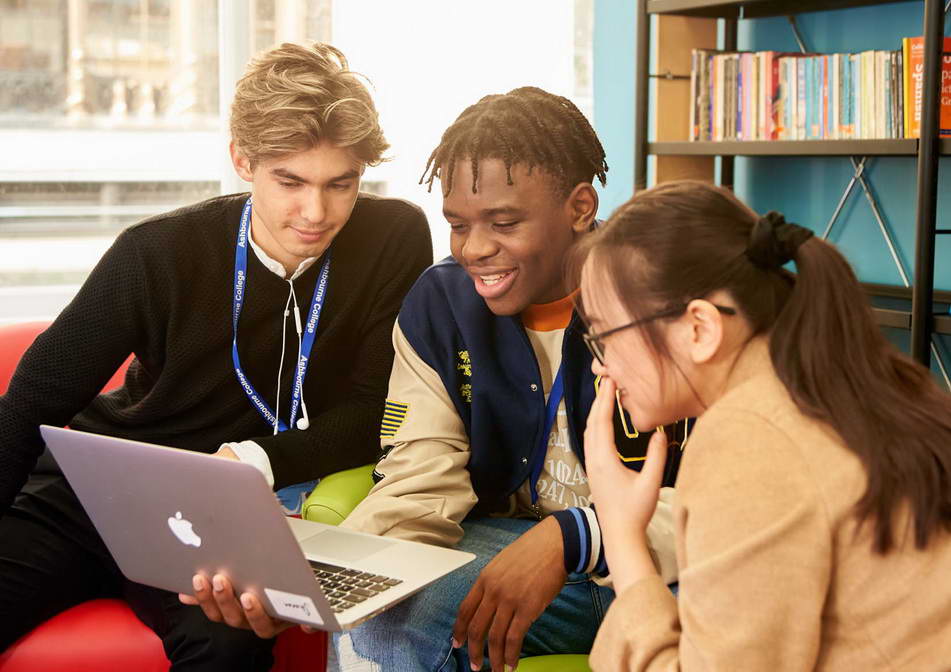Ashbourne follows the OCR specification for AS and A level Computer Science.
AS and A level students cover computer systems (01) and algorithms and programming (02). A level students also complete their own programming project (03 or 04). Throughout both courses students will receive intensive practical training in Visual Basic.Net and Python, high-level programming languages.
Computer systems (01)
The Central Processing Unit (CPU) is essentially the nerve centre of a computer through which all information flows. You will examine how this works and how processors differ; for example desk top computers and mobile devices. You will find out how to identify different data types, work out how programs integrate through data exchange and develop your own software using sophisticated coding languages. Privacy, sharing, hacking and the environment are just some of the legal and ethical issues you will consider in the development of software and its applications in current and future technologies.
AS level written exam: 1hr 15mins, 70 marks, 50% of overall result.
A level written exam: 2hr 30mins, 140 marks, 40% of overall result.
Algorithms and programming (02)
In this unit you will develop your problem solving skills by learning to recognise, analyse and break down ‘problems’ in order to create solutions that the computer will be able to understand. Here you will discover how invaluable algorithms are in helping you describe and resolve complex problems. Algorithms are step-by-step instructions that lead to a final outcome and they exist not only in a scientific context but all around us. Following a cake recipe is just a basic real life example of an algorithm. Algorithms are also responsible for an enormous range of complex activities from codebreaking to financial market management, predicting behaviour, crime prevention and social networking.
AS level written exam: 1hr 15mins, 70 marks, 50% of overall result.
A level written exam: 2hr 30mins, 140 marks, 40% of overall result.
Programming project component (03 or 04)
Go ahead and wow the world with an amazingly innovative program that will change life as we know it using all the problem solving techniques, skills and programming language fluency you have perfected over the course. Now’s your chance to show how you can analyse problems, design and develop solutions and give yourself marks out of ten (evaluation).
Programming project (03 or 04)
A level non-exam assessment: 70 marks, 20% of overall result.
Irwin Chin
BEng Electrical Engineering (Imperial College, London); QTC in ICT (Hertfordshire University)
Irwin has been teaching Mathematics and Computer Science for more than 30 years, as well as lecturing in Electrical Engineering. Along with this extensive experience he brings a wealth of expertise in programming robotics and applying high-level programming languages.
Sree Vidya Dharmarajan
MSc Computer Science and Engineering (NITK); BSc Computer Science and Engineering (Kerala University)
Sree Vidya has extensive training and years of professional experience as a senior software developer with major tech companies, as well as teaching Maths, Computer Science and Engineering. She loves to make complex concepts easy to understand by digging into the detail and finding creative ways for students to examine them.
Joshua Stiggear
BSc Discrete Mathematics (Warwick); PCGE Computing with QTS (King’s College London)
Joshua loves to help his students create ambitious programming projects, from chess engines to games to analysis of planetary bodies. He is particularly passionate about exploring and uncovering unique practical methods and games to understand complex theoretical concepts. He is an experienced Maths and Computer Science teacher and Raspberry Pi educator.
OCR AS and A Level Computer Science
Heathcote and Heathcote
Print and online
WIRED magazine cover all the latest technology and science news, views and issues of the day.
Click Live for the latest gadgets, websites, games and computer industry news from the BBC.
Computer Weekly is the digital magazine and website for IT professionals in the UK.
Science of online dating
How do dating websites calculate the likely success of a relationship. Christian Rudder from a popular dating site explains how his algorithm was a such a hit, on TED.
How do hard drives work?
How did generations of engineers, material scientists and quantum physicists finally come up with such a powerful tool capable of storing so much information in such a small space? Kanawat Senanan explains in this TED talk.
Discover the physical side of the Internet
Underwater cables, secret switches and other physical parts that make up the internet – journalist Andrew Blum explores how they all fit together. TED
Quantum computers for beginners
Shohini Ghose describes how quantum computers are on a completely different level compared to traditional computers and will pave the way for a technological revolution with radical consequences for medicine, encryption and far more. TED
Big data
What is big data and is it taking over the world? Brian Cox, Robin Ince and guests discuss everything about Big Data in this episode of the BBC’s The Infinite Monkey Cage.
Royal Institution
A selection of talks from the world-famous Royal Institution on everything science.
Smashing security keeps you updated with news and views from the world of cybersecurity, hacking and internet threats.
A level videos
OCR A level specification
Organisatons
British Computing Society (BCS)
The BCS is the voice of the computing industry promoting education in the field though news, videos, blogs, expert opinion, lectures and debate. BCS
Books
Code: The Hidden Language of Computer Hardware and Software by Charles Petzold
Using everyday objects and familiar language systems such as Braille and Morse code Charles Petzold weaves an illuminating narrative for anyone who’s ever wondered about the secret inner life of computers and other smart machines.
Computational Fairy Tales by Jeremy Kubica
Introducing the principles of computational thinking through fairy tales, Kubica explores computer science concepts, the motivation behind them and how they can be applied outside of the computer.
Pattern on the stone by Daniel Hill
Daniel Hill unravels the seemingly complex operations of computers and shows how these can be broken down into a series of simple but repeated procedures.
by Dr Sue Black
This book tells the story of how the iconic Bletchley Park was kept alive using the power of social media and the computing technology that was born there. Dr Sue Black, OBE, computer scientist and entrepreneur describes her hugely successful campaign, backed by supporters from all walks of life, to keep this historic treasure open to all.

